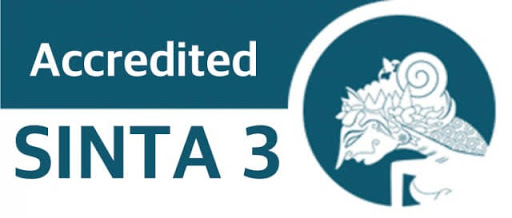Middle school teacher pedagogic competency map for private vocational school in Wanareja Cilacap
DOI:
https://doi.org/10.12928/ijei.v2i1.4009Keywords:
competency map, pedagogy, vocational teachersAbstract
This study aims to map the acquisition of teachers’ pedagogical competence at private vocational high schools Wanareja, Cilacap, Central Java. This research used quantitative method. We involved 60 teachers from four private vocational schools as the research subject. We delivered a Likert-scale questionnaire to assess the pedagogical competence. Then, we analyzed the data using non-parametric inferential statistics. The results showed that the pedagogical competence of private vocational school teachers in Wanareja on ten aspects of pedagogical competence had different categories in each aspect. The aspect of mastering the students’ characteristics was very sufficient (55%). The aspect of mastering the learning theory was good (44%) and very sufficient (40%). The aspect of developing a curriculum was good (48%). The aspect of organizing learning was good (63%). The aspect of using ICT in learning was very sufficient (51%). The aspect of developing the students’ potential was good (44%). The aspect of effective communication and politeness was good (63%). The aspect of conducting an assessment was sufficient (53%). The aspect of utilizing the results of the assessment for the benefit of learning was very sufficient (53%). And finally, the aspect of doing reflective action was sufficient (68%). The implementation of the pedagogical competence of private vocational school teachers in Wanareja has not been evenly distributed in all aspects of competencies and efforts to improve teacher pedagogical competence has not been maximized.References
Danim, S. (2002). Inovasi Pendidikan dalam Upaya Peningkatan Profesionalisme Tenaga Kependidikan. Bandung: Pustaka Setia.
Iswantoro, N., & Suryana. Y. (2016). Kompetensi Pedagogik Guru. Surabaya: Genta Group Production.
Kusnandar. (2007). Guru Profesional, Implementasi Kurikulum Tingkat Satuan Pendidikan. Jakarta: Rajawali Press.
Megawati, S. (2013). Meningkatkan hasil belajar siswa kelas XI SMK Negeri 1 Parigi pada mata pelajaran IPA Biologi melalui pembelajaran kooperatif model Think-Pair-Share. Jurnal Kreatif Online, 2(4), 331-342.
Mulyasa, E. (2011). Menjadi Guru Profesional. Bandung: Remaja Rosdakarya.
Mulyasa, H. E. ( 2017). Uji Kompetensi dan Penilaian Kinerja Guru. Bandung: Remaja Rosdakarya.
Musfah, J. (2015). Peningkatan Kompetensi Guru melalui Pelatihan dan Sumber Belajar, Teori dan Praktik. Jakarta: Kencana.
Umami, D. R. (2014). Pengaruh kompetensi pedagogik dan motivasi kerja guru terhadap prestasi belajar siswa dalam ujian nasional (UN) di SMA Negeri se-Kota Mojokerto. Inspirasi Manajemen Pendidikan, 3(3).
Saggaf, M. S., Salam, R., & Wirawan, H. (2017). The influence of teacher's pedagogic competence on learning motivation of student of office administration expertise package. In 8th International Conference of Asian Association of Indigenous and Cultural Psychology (ICAAIP 2017). Atlantis Press.
Sugiyono. (2019). Metode Penelitian Pendidikan. Bandung: Alfabeta.
Suhandani, D., & Julia, J. (2014). Identifikasi kompetensi guru sebagai cerminan profesionalisme tenaga pendidik di Kabupaten Sumedang (Kajian pada kompetensi pedagogik). Mimbar Sekolah Dasar, 1(2), 128-141.
Iswantoro, N., & Suryana. Y. (2016). Kompetensi Pedagogik Guru. Surabaya: Genta Group Production.
Kusnandar. (2007). Guru Profesional, Implementasi Kurikulum Tingkat Satuan Pendidikan. Jakarta: Rajawali Press.
Megawati, S. (2013). Meningkatkan hasil belajar siswa kelas XI SMK Negeri 1 Parigi pada mata pelajaran IPA Biologi melalui pembelajaran kooperatif model Think-Pair-Share. Jurnal Kreatif Online, 2(4), 331-342.
Mulyasa, E. (2011). Menjadi Guru Profesional. Bandung: Remaja Rosdakarya.
Mulyasa, H. E. ( 2017). Uji Kompetensi dan Penilaian Kinerja Guru. Bandung: Remaja Rosdakarya.
Musfah, J. (2015). Peningkatan Kompetensi Guru melalui Pelatihan dan Sumber Belajar, Teori dan Praktik. Jakarta: Kencana.
Umami, D. R. (2014). Pengaruh kompetensi pedagogik dan motivasi kerja guru terhadap prestasi belajar siswa dalam ujian nasional (UN) di SMA Negeri se-Kota Mojokerto. Inspirasi Manajemen Pendidikan, 3(3).
Saggaf, M. S., Salam, R., & Wirawan, H. (2017). The influence of teacher's pedagogic competence on learning motivation of student of office administration expertise package. In 8th International Conference of Asian Association of Indigenous and Cultural Psychology (ICAAIP 2017). Atlantis Press.
Sugiyono. (2019). Metode Penelitian Pendidikan. Bandung: Alfabeta.
Suhandani, D., & Julia, J. (2014). Identifikasi kompetensi guru sebagai cerminan profesionalisme tenaga pendidik di Kabupaten Sumedang (Kajian pada kompetensi pedagogik). Mimbar Sekolah Dasar, 1(2), 128-141.
Downloads
Published
2021-07-22
How to Cite
Basuki, R., Susatya, E., & Kristiyanto, B. N. A. (2021). Middle school teacher pedagogic competency map for private vocational school in Wanareja Cilacap. International Journal on Education Insight, 2(1), 37–44. https://doi.org/10.12928/ijei.v2i1.4009
Issue
Section
Articles
License
Authors who publish with this journal agree to the following terms:
- Authors retain copyright with the work simultaneously licensed under a Creative Commons Attribution License that allows others to share the work with an acknowledgement of the work's authorship and initial publication in this journal.
- Authors are able to enter into separate, additional contractual arrangements for the non-exclusive distribution of the journal's published version of the work (e.g., post it to an institutional repository or publish it in a book), with an acknowledgement of its initial publication in this journal.
- Authors are permitted and encouraged to post their work online (e.g., in institutional repositories or on their website) prior to and during the submission process, as it can lead to productive exchanges, as well as earlier and greater citation of published work (See The Effect of Open Access).




